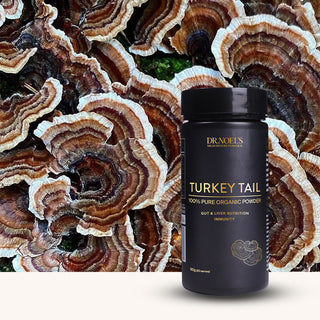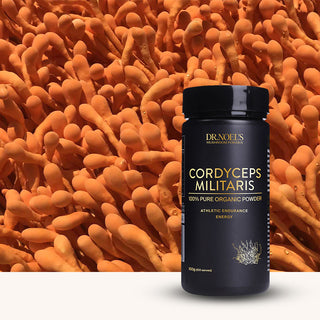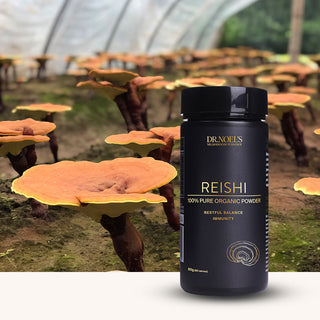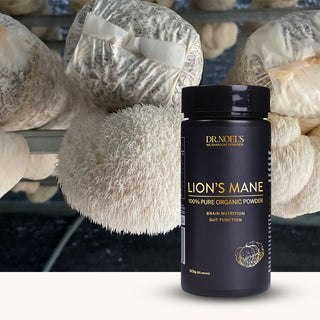
Trametes versicolor, or Turkey tail mushrooms, have been shown to have numerous health benefits, including protection against anything from cancer to heart disease. But they have also received a lot of praise for their anti-inflammatory properties.
Triterpenoids, polysaccharides, and sterols in Turkey tail mushrooms have anti-inflammatory properties. These mushrooms also contain anti-inflammatory antioxidants that may decrease chronic inflammation and help treat inflammatory illnesses.
Turkey tail mushrooms contain two polysaccharopeptides, Krestin (PSK) and Polysaccharide Peptide (PSP). These possess powerful immune-boosting properties, which can suppress inflammation.
Let’s look at how these mushrooms reduce inflammation and the anti-inflammatory health benefits of Turkey tail. We will also discuss finding the right mushroom product and some possible side effects of the mushroom extracts.
Anti-Inflammatory Benefits Of Turkey Tail Mushroom
Any tissue may experience inflammation due to trauma, infections, toxins, or autoimmune injury. The body’s reaction to inflammation is typically self-limiting, but it can occasionally become prolonged. This can cause many inflammatory diseases, such as inflammatory bowel disease (IBD), rheumatoid arthritis, multiple sclerosis, gastritis, bronchitis, and atherosclerosis.
Turkey tail contains a wide variety of antioxidants, polysachharopeptides, phenol, sterols, and flavonoid, which help reduce inflammation and stimulate the release of protective compounds. These compounds have been the interest of numerous scientific research, and here’s looking at the most notable ones.
In a 2018 study, 27 substances were extracted from Trametes versicolor’s fruiting bodies, including eight sterols, nine triterpenoids, four phenols, two ribonucleotides, three glycosides, and one furan (1). Six of these were discovered to significantly and dose-dependently suppress the generation of NO, TNF-, and IL-6, the chemicals that cause inflammation in the body.
Another study looked at how Trametes versicolor treatment improved the anti-inflammatory characteristics of grape pomace (2). Here, the grape pomace extracts’ ability to reduce inflammation before and after therapy was investigated. The anti-inflammatory activity of the grape extracts increased after a one to four-day treatment with Turkey tail extracts.
A 2019 research from the United States examined the mycelium from Turkey tail mushrooms and its substrate for immune-activating properties (3). Results of the study show that the body produces more proinflammatory cytokines, which are used to fight inflammation, as a result of the mushroom’s mycelium. The same study also claimed that the Turkey tail mushroom produces compounds that can fight viruses.
According to a study published in the Indian Veterinary Journal, Turkey tail polysaccharide krestin effectively treats rheumatoid arthritis (4). Six groups of male Wistar rats had their foot diameters measured with calipers. The results showed that the foot diameter has significantly decreased, indicating reduced inflammation-related swelling.
Turkey tail mushroom contains the flavonoid antioxidant quercetin. The chemical has been shown to inhibit the release of inflammation-causing enzymes like lipoxygenase and cyclooxygenase (5).

Finding The Best Turkey Tail Mushroom Supplement For Health And Wellness
Making the most of the mushroom’s benefits requires using a high-quality Turkey tail mushroom product. If you’re feeling overwhelmed and unsure how to find the right Turkey tail mushroom product, we will give you a low down on what to look for when purchasing the mushroom supplement below.
There are three questions to ask about the Turkey tail product before buying:
- First, is the product made of the Turkey tail mushroom or mycelium?
- Second, how is the turkey tail mushroom extracted?
- Third, what is the beta-glucan content of the Turkey tail supplement?
Let’s answer this one at a time.
- If a product does not specify the specific source of Turkey tail on its label, you may be buying a product that uses mycelium (the fungal root structure) rather than the mushroom.
The mushroom’s root system, or mycelium, grows on grain. Unfortunately, the marketed final supplement contains both mycelium and cultivated grain. As a result, the finished product will primarily be composed of the grain itself, reducing its beneficial therapeutic qualities. - Look for a Turkey tail mushroom supplement whose ingredients list indicates that only organic mushrooms were utilized and that no mycelium or grain was included. Turkey tail mushrooms have a unique ability to support the immune system, and beta-glucans are primarily responsible for this. Unfortunately, many companies may add fillers, starch, colorings, unwanted chemicals, and other components to their supplements.
There are no health advantages to these additives. Even worse, they show that only a tiny amount of Turkey Tail extract is included in the supplement. Because of these ingredients, the supplement has a lower concentration of beta-glucans, which means it has less therapeutic potential. - If the beta-glucan content is not listed on the label, it is doubtful that the product has enough amounts of it. Be sure the label displays a beta-glucan concentration of at least 25% to get the best Turkey tail mushroom supplement. You will then fully benefit from the health benefits of this mushroom.
- The beneficial fungi’s chemicals are more readily available to our bodies thanks to mushroom extraction. Taking a turkey tail extract as a powder or pill is a simple method to acquire a concentrated dose of the healthy ingredients in this fungus. Ask the manufacturer if a hot water extraction process was utilized to produce the supplement to ensure you get the best Turkey tail mushroom.
Dosage Of Turkey Tail For Health Benefits
The recommended dose of Turkey tail mushroom powder is 2000 mg. Two grams of Turkey tail is the dosage recommended by mushroom experts and researchers. This gives enough beta-glucans and polysaccharides for mounting an adequate anti-inflammatory response.
Medicinal mushrooms like Turkey tail are best taken consistently for overall health benefits. functional mushrooms need time to accumulate in the body and produce desirable immune health benefits.
Possible Side Effects Of Turkey Tail Supplement
Trametes versicolor supplements are generally well tolerated by most people. However, for some cancer patients receiving anti-cancer treatment, the polysaccharide krestin may cause low blood cells count, vomiting, and liver problems.
Turkey tail mushrooms may cause mushroom allergies in sensitive people. There are no reported interactions between prescription medication and Turkey tail. Instead, studies have found that Turkey Tail and other medicinal mushrooms were combined with cytotoxic medications to treat cancer, increasing their effectiveness (6).
FAQS About Anti-Inflammatory Turkey Tail Mushroom Benefits
Does Turkey Tail Reduce Inflammation?
Turkey tail mushrooms have bioactive compounds that have been shown to combat inflammation. Two types of polysaccharopeptides, PSK and PSP, found in Turkey tail extracts are known to promote immune response by suppressing inflammation and activating immune responses.
When Is The Best Time To Take Turkey Tail?
Turkey tail mushrooms are best enjoyed in the morning. Due to its status as a gut nourisher and immunomodulator, the mushroom can be enjoyed with your morning tea.
Key Takeaways
Turkey tail mushrooms contain various antioxidants, including phenols, flavonoids, and polysachharopeptides, which can help reduce inflammation in the body. If you are suffering from any inflammatory condition, try Turkey tail supplements to ease your symptoms.
References
- https://www.tandfonline.com/doi/full/10.1080/14786419.2018.1446011?scroll=top&needAccess=true
- https://pubs.rsc.org/en/content/articlelanding/2020/FO/C9FO02296A
- https://pubmed.ncbi.nlm.nih.gov/31791317/
- https://www.researchgate.net/profile/Suhailah-Hayaza/publication/339140201_Effect_of_Polysaccharide_Krestin_on_MMP3_Expression_and_Foot_Diameter_in_Rheumatoid_Arthritis_in_Rat/links/5e4109d3299bf1cdb91be8a5/Effect-of-Polysaccharide-Krestin-on-MMP3-Expression-and-Foot-Diameter-in-Rheumatoid-Arthritis-in-Rat.pdf
- https://www.ncbi.nlm.nih.gov/pmc/articles/PMC4808895/
- https://www.ncbi.nlm.nih.gov/pmc/articles/PMC4684115/





